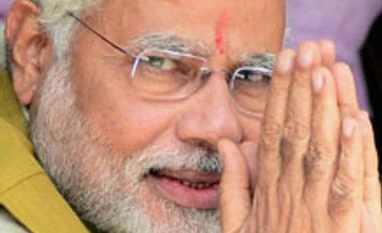The strong mandate increases the possibility of a stable central government that would pursue a shared economic agenda to address India’s macroeconomic challenges, Moody’s Investors Services said in a statement.
In the past, intra-coalition differences around economic priorities have derailed measures to improve India’s operating environment. The election results’ immediate effect will be to sustain investor sentiment, which has recently boosted equity indexes and the rupee.
More From This Section
Moody’s rating for India is “Baa3 stable”.
The agency sounded a word of caution on expecting any immediate change in economic situation. The policy measures to revive the economy will likely emerge in the coming months. But India’s growth, fiscal and inflation metrics are unlikely to improve immediately, said Atsi Sheth, Vice-President - Senior Credit Officer.
Over the next 12-18 months, how the extent to which these metrics do improve will depend on what measures the new government adopts to address India’s weak fiscal position, the regulatory constraints on investment and output and the lack of adequate social and physical infrastructure.
Portfolio capital flows into India have accelerated this year in anticipation of a BJP-led coalition forming the next government, and pursuing policies conducive to investment and economic growth, it said.
As a result, the rupee has appreciated almost five per cent against the US dollar since the beginning of the year.
BSE Sensex rose by more than 17 per cent in the three months, leading up to the release of the election results, and a further 0.9 per cent on the day the results were announced.
The agency said the policy measures to revive the economy would likely emerge in the coming months. But India’s growth, fiscal and inflation metrics are unlikely to improve immediately.
Agency said although market indicators have shifted rapidly in response to sentiment, economic trends will reverse more slowly. Economic data show that growth remains weak and inflation is high.
Industrial output in March decreased by 0.5 per cent from a year earlier and annual CPI (consumer price index) inflation was 8.6 per cent in April. The central government estimated its fiscal deficit was 4.6 per cent in the fiscal year ended in March, higher than in most comparably rated countries.
Although India’s GDP (gross domestic product) growth rate has been higher than that of several peer countries, even during its economic slowdown, India’s fiscal metrics, inflation levels and infrastructure have long been weaker than those of other Baa-rated countries. India’s relatively high fiscal deficits fuel inflation and raise private-sector borrowing costs.
Meanwhile, regulatory restrictions that discourage investment pose supply constraints that curtail growth and underpin recurrent inflationary pressures. In addition, limited financing options and high project implementation risks have hindered the development of India’s infrastructure.
)